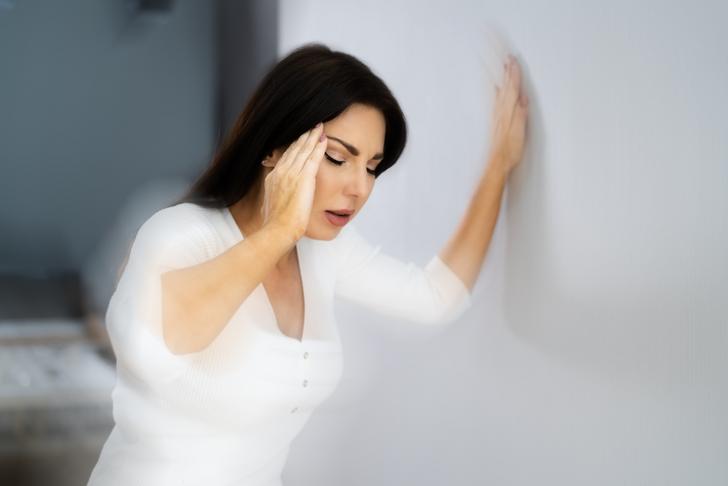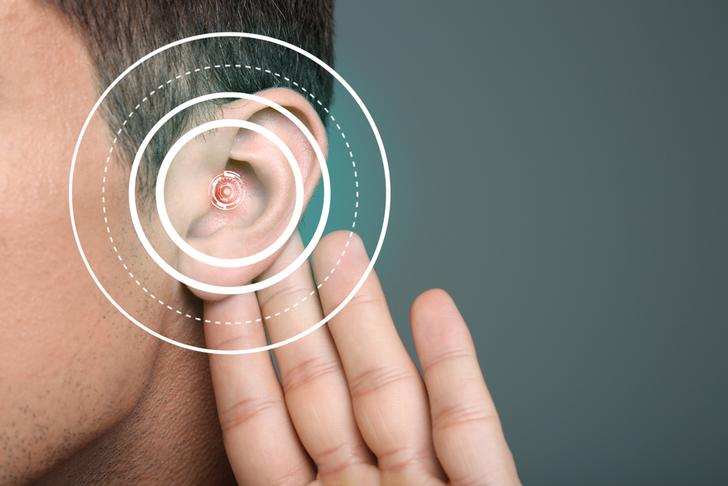Understanding the Symptoms of Vertigo
Vertigo is a condition that causes a sensation of dizziness, spinning, or imbalance. It can be caused by various factors, such as inner ear problems, head injuries, or certain medications. This article will discuss ten common symptoms of vertigo to help you recognize the signs and seek appropriate treatment.
Sensation of Spinning or Moving
One of the primary symptoms of vertigo is a sensation that you or your surroundings are spinning or moving. This feeling can be mild or severe, and it may come and go or persist for extended periods[[1]].

Advertisement
Nausea and Vomiting
Vertigo can cause feelings of nausea and even lead to vomiting. This is due to the disorientation and imbalance caused by the spinning sensation[[1]].

Advertisement
Loss of Balance
Another common symptom of vertigo is a loss of balance. You may feel unsteady on your feet and have difficulty walking or standing without support[[2]].

Advertisement
Dizziness
Dizziness is a general term that can describe various sensations, such as lightheadedness, faintness, or unsteadiness. Vertigo is a specific type of dizziness characterized by the sensation of spinning or movement[[3]].

Advertisement
Headaches
Headaches can sometimes accompany vertigo, particularly if the vertigo is caused by an underlying condition, such as migraines or head injuries[[1]].

Advertisement
Sweating
Vertigo can cause increased sweating, as the body tries to compensate for the disorientation and imbalance. This symptom may be more noticeable during episodes of severe vertigo[[2]].

Advertisement
Ringing in the Ears
Ringing in the ears, also known as tinnitus, can be a symptom of vertigo, especially if the vertigo is caused by an inner ear problem. The ringing may be constant or intermittent and can vary in volume[[1]].

Advertisement
Hearing Loss
In some cases, vertigo can be accompanied by hearing loss. This is more common when the vertigo is caused by an inner ear issue, such as Meniere’s disease[[2]].

Advertisement
Visual Disturbances
Visual disturbances, such as blurred vision or difficulty focusing, can be a symptom of vertigo. These disturbances may be more noticeable when you move your head or change positions[[1]].

Advertisement
Fatigue
Fatigue can be a symptom of vertigo, as the constant sensation of spinning or movement can be mentally and physically exhausting. You may feel more tired than usual and have difficulty concentrating or completing tasks[[2]].
Advertisement
Causes of Vertigo
Vertigo is a sensation of feeling off-balance or experiencing a sense of spinning when you are not actually moving. It’s often due to issues in the brain or the inner ear. Some of the main causes include:
- Benign Paroxysmal Positional Vertigo (BPPV): Tiny calcium particles clump up in the inner ear, causing brief episodes of mild to intense dizziness.
- Meniere’s Disease: An inner ear disorder caused by a buildup of fluid and changing pressure in the ear that can cause episodes of vertigo.
- Vestibular Neuritis or Labyrinthitis: Inflammation of the inner ear usually caused by a viral infection, resulting in dizziness and loss of balance.
- Migraines: Some people may experience vertigo and dizziness before they have a migraine.
- Certain Medications: Certain drugs can also cause vertigo.
Advertisement
Treatments for Vertigo
Treatment for vertigo depends on the cause and severity of the symptoms. Some treatment options include:
- Vestibular Rehabilitation: This is a type of physical therapy aimed at helping strengthen the vestibular system. The function of the vestibular system is to send signals to the brain about head and body movements relative to gravity.
- Canalith Repositioning Maneuvers: Guidelines from the American Academy of Neurology recommend a series of specific head and body movements for BPPV. The movements are done to move the calcium deposits out of the canal into an inner ear chamber so they can be absorbed by the body.
- Medication: In some cases, medication may be given to relieve symptoms such as nausea or motion sickness associated with vertigo.
- Surgery: In a few cases, surgery may be needed for vertigo. If vertigo is caused by a more serious underlying problem, such as a tumor or injury to the brain or neck, treatment for those problems may help to alleviate the vertigo.
Advertisement
Conclusion
Vertigo can present with a range of symptoms from a sensation of spinning to nausea and balance issues. Recognizing these symptoms is crucial for seeking appropriate professional advice and treatment. Treatments can range from physical therapy exercises to medications and, in some cases, surgery. If you experience symptoms of vertigo, it is essential to consult a healthcare professional for an accurate diagnosis and appropriate treatment. Through suitable intervention, the impact of vertigo on daily life can be significantly reduced.

Advertisement





